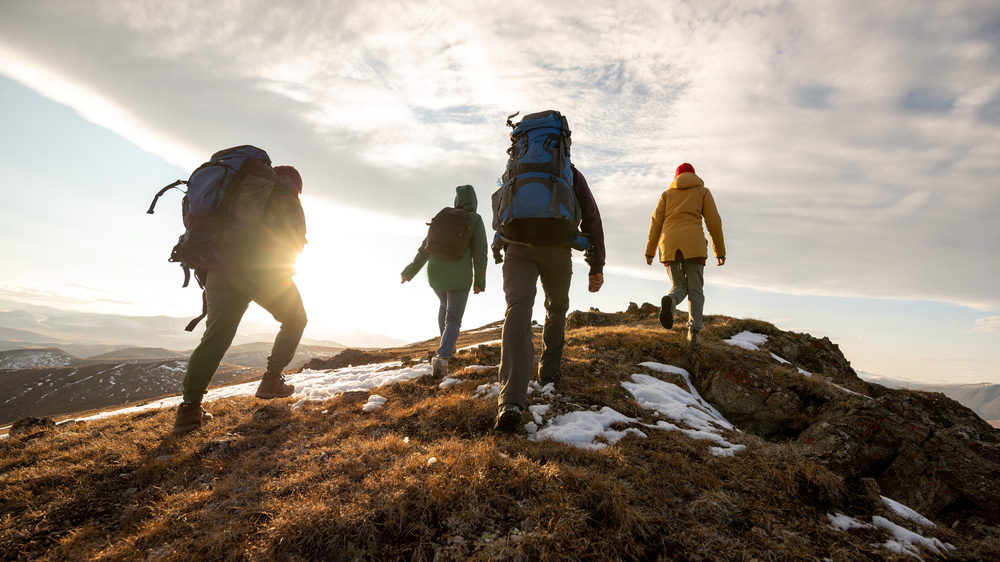In today’s fast-paced world‚ stress has become an unwelcome companion for many. Finding healthy and effective ways to manage stress is crucial for overall well-being. While various stress-reduction techniques exist‚ one often overlooked yet remarkably beneficial activity is hiking. Embarking on a journey into nature can offer a powerful escape from the pressures of daily life‚ providing both physical and mental rejuvenation.
The Science Behind Hiking and Stress Reduction
Hiking’s stress-relieving effects are rooted in a combination of physiological and psychological factors. Physical activity‚ like hiking‚ releases endorphins‚ which have mood-boosting and pain-relieving properties. Furthermore‚ being in nature has been shown to lower cortisol levels‚ the hormone associated with stress.
- Endorphin Release: Physical exertion triggers the release of endorphins.
- Cortisol Reduction: Exposure to nature lowers stress hormone levels.
The Power of Nature
Beyond the physical benefits‚ the natural environment itself plays a significant role. Studies have demonstrated that spending time in green spaces can improve mood‚ reduce anxiety‚ and enhance cognitive function. The sights‚ sounds‚ and smells of nature provide a calming and restorative experience.
Factoid: A study by the University of Michigan found that spending just 20 minutes in nature can significantly lower stress hormone levels.
Practical Tips for Hiking to Reduce Stress
To maximize the stress-reducing benefits of hiking‚ consider these tips:
- Choose the Right Trail: Select a trail that matches your fitness level and preferences. Start with easier hikes and gradually increase the difficulty.
- Disconnect from Technology: Leave your phone in your backpack or switch it to airplane mode to fully immerse yourself in the natural surroundings.
- Practice Mindfulness: Pay attention to your surroundings‚ focusing on the sights‚ sounds‚ and sensations of the present moment.
- Hike with Friends (or Alone): Whether you prefer the camaraderie of hiking with friends or the solitude of solo exploration‚ choose the option that best suits your needs.
- Hydrate and Fuel: Bring plenty of water and healthy snacks to keep your energy levels up.
Making Hiking a Habit
Consistency is key to reaping the long-term benefits of hiking for stress reduction. Try to incorporate hiking into your routine on a regular basis‚ even if it’s just for a short walk in a nearby park. The more you hike‚ the more you’ll experience its positive effects on your mental and physical well-being.
FAQ: Hiking and Stress Relief
Q: How often should I hike to reduce stress?
A: Aim for at least 2-3 hikes per week‚ even if they are short. Consistency is more important than duration.
Q: What if I don’t have access to mountains or forests?
A: Any green space can provide stress-reducing benefits. Explore local parks‚ nature reserves‚ or even urban trails.
Q: Is hiking alone safe?
A: If you’re hiking alone‚ inform someone of your plans and expected return time. Carry a map‚ compass‚ and first-aid kit. Consider using a personal locator beacon (PLB) in remote areas.
Q: What should I wear when hiking?
A: Wear comfortable‚ moisture-wicking clothing and sturdy hiking shoes or boots. Dress in layers to adapt to changing weather conditions.
Q: Can hiking help with anxiety?
A: Yes‚ studies have shown that hiking can reduce anxiety symptoms by promoting relaxation and improving mood.
Beyond Stress: Additional Benefits of Hiking
While stress reduction is a primary benefit‚ hiking offers a multitude of other advantages for your overall health and well-being. These extend beyond the mental realm and encompass physical fitness‚ social connection (if hiking with others)‚ and a deeper appreciation for the natural world.
- Improved Cardiovascular Health: Hiking is a great cardio workout‚ strengthening your heart and lungs.
- Increased Muscle Strength and Endurance: Hiking engages various muscle groups‚ particularly in your legs and core.
- Weight Management: Hiking burns calories and helps maintain a healthy weight.
The Social Aspect of Hiking
Hiking doesn’t have to be a solitary activity. Joining a hiking group or exploring trails with friends and family can foster social connections and create lasting memories. Sharing the experience with others can enhance the enjoyment and provide a sense of community.
Factoid: Studies have shown that social interaction and strong social connections can significantly reduce stress and improve overall well-being.
Choosing the Right Gear for Your Hike
Having the right gear can make your hiking experience more comfortable and enjoyable. While you don’t need to invest in expensive equipment‚ certain items are essential for safety and comfort.
- Hiking Boots or Shoes: Provide ankle support and traction on uneven terrain.
- Backpack: Carry water‚ snacks‚ a first-aid kit‚ and other essentials.
- Water Bottle or Hydration Pack: Stay hydrated throughout your hike.
- Sunscreen and Hat: Protect yourself from the sun’s harmful rays.
- Map and Compass (or GPS): Navigate unfamiliar trails.
Respecting Nature: Leave No Trace
When hiking‚ it’s crucial to respect the environment and minimize your impact. Practice the principles of “Leave No Trace” to preserve the natural beauty for future generations. This includes packing out everything you pack in‚ staying on designated trails‚ and avoiding disturbing wildlife.
Hiking is more than just a physical activity; it’s a pathway to stress relief‚ improved well-being‚ and a deeper connection with nature. By incorporating hiking into your routine‚ you can experience the transformative power of the outdoors and discover a healthier‚ happier you. So‚ lace up your boots‚ hit the trail‚ and let the natural world work its magic. Your mind and body will thank you for it.

